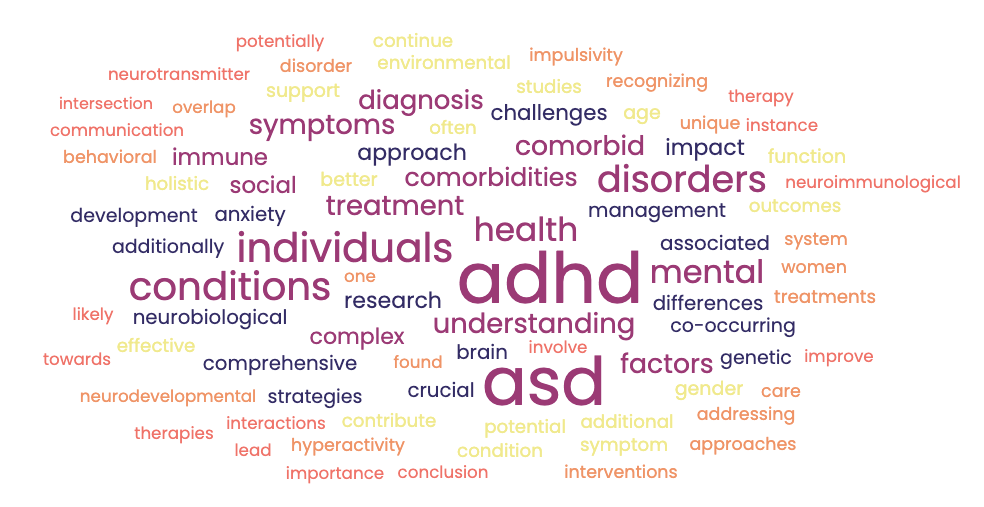Understanding the Role of Therapy in Treating Depression
Depression casts a long shadow over millions of lives, with individuals from all walks of life seeking relief from its stifling grasp. While medication can play a crucial role in managing symptoms, the art and science of therapy offer an equally powerful path to healing. This comprehensive guide explores the multi-faceted benefits of therapy for those combating depression, providing insight into treatments that go beyond the prescription.
Defining Depression and the Crucial Link to Therapy
Depression is more than just a feeling of sadness; it is a complex mental health condition that can significantly impact a person’s ability to work, study, eat, sleep, and enjoy life. According to the World Health Organization (WHO), over 264 million people around the world live with depression. It’s one of the most common mental disorders and has been identified as a leading cause of disability worldwide.
Therapy stands as a beacon of hope, a testament to the belief that the human mind can mend with the right tools and guidance. In this post, we’ll explore why therapy is not only a recommended course of action for managing depression but is a critical component that supports and sustains long-term well-being.
Types of Therapy for Depression
Several therapeutic modalities have proven effective in the treatment of depression. These range from structured short-term treatments to longer-term exploratory approaches. Each method is designed to help individuals address their depressive symptoms and associated challenges.
Cognitive Behavioral Therapy (CBT)
CBT is a widely used therapeutic approach focused on the relationship between thoughts, feelings, and behaviors. By helping individuals recognize negative thought patterns and replace them with positive ones, CBT can significantly reduce symptoms of depression. It is a time-limited therapy that typically takes place over 10-20 sessions.
Acceptance and Commitment Therapy (ACT)
ACT is a form of psychotherapy that encourages patients to accept their thoughts and feelings rather than fighting or feeling guilty for them. It focuses on helping individuals live and behave in ways consistent with personal values while developing psychological flexibility. For those struggling with depression, ACT aids in creating a rich, full, and meaningful life, while accepting the pain that inevitably goes with it. This approach often involves mindfulness strategies, commitment to action aligned with personal values, and cognitive defusion techniques to reduce the impact of negative thoughts.
Behavioral Activation (BA)
Behavioral Activation is a straightforward approach emphasizing the importance of engaging in activities that bring joy and fulfillment. It operates on the principle that depression is maintained by a cycle of avoidance and withdrawal from meaningful interaction with the world. BA helps patients break this cycle by gradually encouraging them to participate in pleasant activities, thereby disrupting the depression feedback loop. This approach is highly actionable and can be particularly effective for those who may feel overwhelmed by more intensive psychotherapeutic treatments.
The Role of Behavioral Change in Treating Depression
At the heart of many therapeutic approaches for depression is the concept of behavioral change. This involves altering daily activities, routines, and interactions to foster a more positive mood and sense of well-being. Whether through structured therapies like CBT and BA or through the values-driven actions promoted in ACT, behavior change is a key component in successfully managing and overcoming depression. Encouraging patients to take small, manageable steps towards change can lead to significant improvements in mood and outlook, offering a hopeful path out of depression’s depths.
Interpersonal Therapy (IPT)
IPT focuses on improving relationships and communication skills to address specific problems related to depression. By helping individuals improve their social support networks and resolve interpersonal conflicts, IPT can help alleviate symptoms of depression and prevent relapse. It is typically conducted in 12-16 sessions.
Benefits of Therapy in Treating Depression
The advantages of therapy in the context of depression are multifaceted and extend far beyond the session’s immediate impact. Therapy is a collaborative process that equips individuals with tools to manage their condition and, over time, foster a greater sense of well-being.
Improved Coping Strategies
One of the primary goals of therapy is to equip individuals with adaptive coping mechanisms. By learning how to respond to stress and negative emotions in constructive ways, therapy empowers patients to take control of their mental health. This can be especially beneficial in managing symptoms of depression, which often involve a sense of helplessness and lack of control.
Addressing Underlying Issues
Therapy provides a safe space for individuals to explore the underlying causes of their depression. By addressing these root issues, therapy can offer long-term solutions rather than just temporary relief from symptoms. This holistic approach to treatment promotes lasting healing and a deeper understanding of oneself.
Enhanced Self-Awareness
Through self-reflection and the guidance of a therapist, individuals can develop a deeper understanding of the root causes of their depression. This increased self-awareness can be a powerful catalyst for change and personal growth. It also allows individuals to recognize patterns and triggers that may contribute to their depression, leading to better self-management.
Emotional Support
Depression can be a profoundly isolating experience, but therapy offers a supportive and non-judgmental space for individuals to share their struggles. Having a therapist who understands and validates one’s feelings can provide much-needed emotional support, reducing feelings of loneliness and despair.
Reduction in Symptoms and Relapse Prevention
Many studies have shown that therapy, especially CBT, can lead to a significant decrease in depression symptoms. Furthermore, by addressing the underlying issues, therapy can help prevent future depressive episodes.
Support System Development
Therapy offers a structured, supportive environment where individuals are encouraged to express their feelings without judgment. This process can lead to the development of a healthier support system and improved social supports, which are vital in managing depression.
Long-Term Maintenance
Therapy not only helps individuals manage their current symptoms of depression, but it also provides tools for long-term maintenance. By learning how to cope with challenges and triggers, individuals can prevent relapse and maintain their well-being over time. With continued therapy and support, individuals can build a strong foundation for a happier and healthier life. Overall, therapy offers hope and the potential for lasting change in the treatment of depression. Through various approaches tailored to individual needs, individuals can find relief, develop new coping skills, and gain valuable insights that ultimately lead to improved mental health and well-being. So if you or someone you know is struggling with depression, consider seeking out therapy as a valuable resource on the path towards recovery. So why wait? Take the first step towards improving your mental health and well-being today by reaching out to a therapist or mental health professional. Remember, change is possible, and help is available. You are not alone in this journey. Stay hopeful, stay strong, and keep moving forward. There is light at the end of the tunnel. Let therapy be your guide towards a happier and healthier life!
Therapy Approaches Tailored to Specific Needs
Depression often coexists with other conditions, such as ADHD or autism, which may require tailored therapeutic interventions. Understanding and addressing these complex presentations is essential in providing effective care.
Therapy for Individuals with Co-Occurring Disorders
For patients with depression and ADHD, therapy can focus on attention-related challenges and their impact on mood. Similarly, individuals with autism may benefit from therapies adapted to accommodate their unique perspectives and communication styles.
Therapy for Individuals with Medical Diagnoses Impacting Mental Health
Chronic illnesses and disabilities can take a significant toll on mental health, often leading to or exacerbating depression. In these cases, therapy can be crafted to help individuals cope with their medical conditions and the emotional ramifications they entail.
Case Studies or Personal Stories
Real-life narratives can offer powerful validation of therapy’s effectiveness in treating depression. These stories highlight the tangible, life-changing outcomes that therapy can bring, inspiring hope and action in those who may be hesitant to seek professional help.
A Life Transformed by Cognitive Behavioral Therapy
A young adult recollects her year-long CBT program, describing a metamorphosis from a state of despair to one of hope, resilience, and a restored sense of self-esteem and purpose.
Strength in Numbers: Group Therapy’s Uniting Force
The testimonial of a professional echoes the sentiment of countless others who found solace and strength in a therapy group, fostering relationships that sustain them in their ongoing battle with depression.
A Beacon for Unique Minds: Specialized Therapies for Autism and Depression
An individual with autism reflects on their therapy experience, emphasizing the value of approaches tailored to their specific needs and the positive impact on their mental health.
Navigating the Journey to Help a Loved One Beat Depression
A family member shares the challenges and triumphs of helping a loved one find the right therapy, witnessing firsthand the tangible improvements in their daily life and mental well-being.
Community Support and Advocacy
The path to healing from depression is not one traveled alone. Community involvement and advocacy for mental health services are critical in ensuring that therapy is accessible to those who need it most.
The Vital Role of Community Involvement in Mental Health
A discussion of the ways in which community programs and support groups can complement individual therapy by providing a broader network of resources and understanding.
Advocating for Access to Mental Health Services
A call to action for policymakers, organizations, and individuals to advocate for improved access to quality mental health services, including therapy, for all members of the community.
Conclusion
Therapy is a beacon of hope for those living with depression, offering a personalized path to understanding, healing, and resilience. This comprehensive examination of therapy’s role in the treatment of depression serves as a resource for empowering individuals to seek the help they need and for encouraging advocates to push for broader mental health support.
In a world where the burden of depression is shared by many, the light of therapy shines as a collective force for change in the darkest of times. Seeking professional help, whether as a patient, a loved one, or a supporter, is the first step toward a future free from the constraints of depression. The road may be long, but with the right guidance, every step is a triumph.







